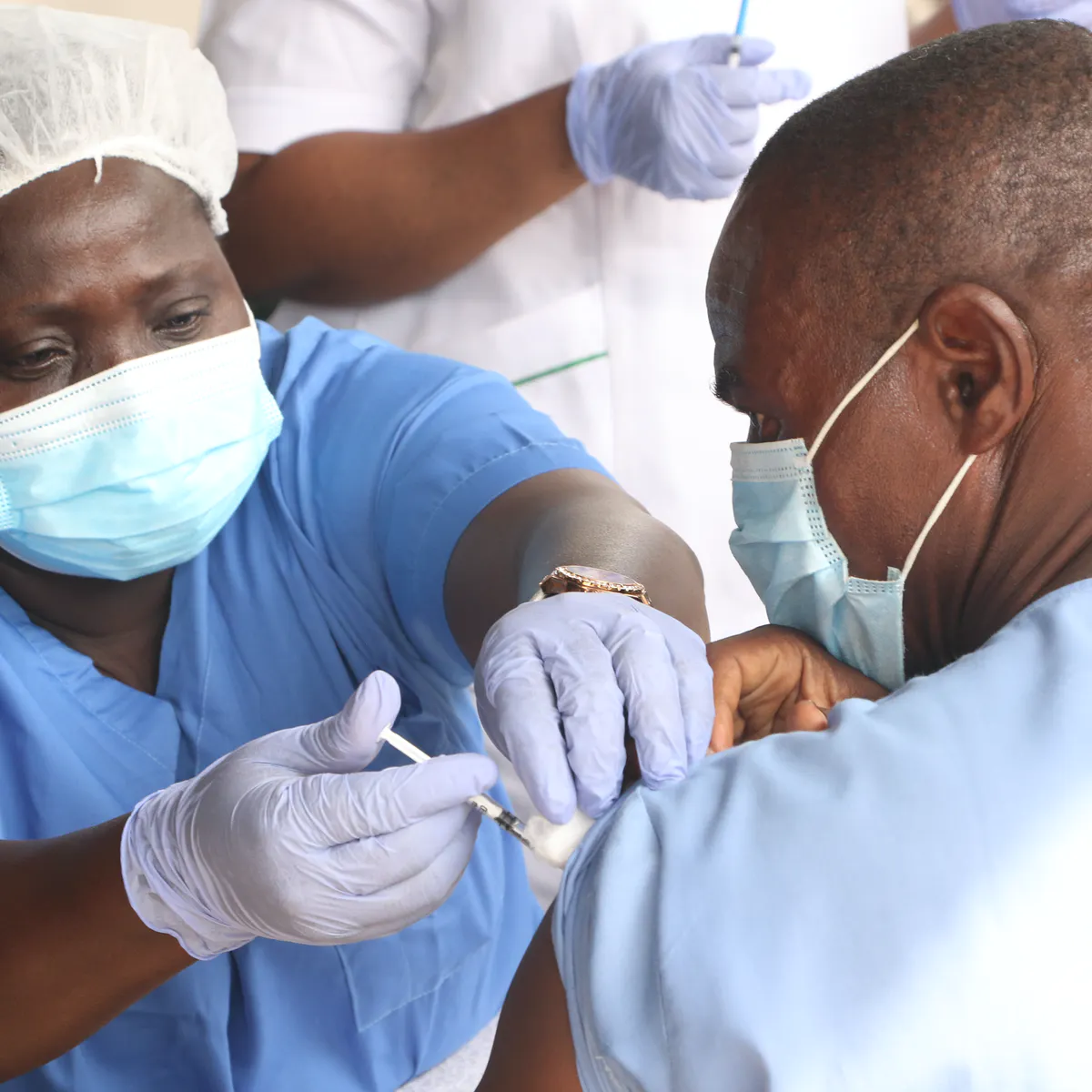
The Rotary Club of Abuja Apo Resettlement has provided free hepatitis screening, vaccination, counseling and referrals for over 200 residents of the Apo Resettlement community in the Federal Capital Territory (FCT).
This outreach, held in commemoration of the 2024 World Hepatitis Day, aimed to curb the spread of the disease and promote public health awareness.
President of Rotary Apo Resettlement Abuja, Rotarian Eyime Akor emphasised the significance of this initiative. “This outreach is part of Rotary’s global campaign to combat hepatitis, particularly focusing on World Hepatitis Day, celebrated annually on July 28,” she said. The programme targets vulnerable populations, including those with limited access to healthcare services.
World Hepatitis Day 2024 is a pivotal occasion spotlighting the ongoing global fight against viral hepatitis, a major public health challenge affecting millions worldwide. Despite substantial progress in research and healthcare, viral hepatitis remains a significant cause of chronic liver disease and liver cancer, contributing to high morbidity and mortality rates globally.
The outreach programme, which began on July 26, 2024, involves simple blood tests to detect the presence of hepatitis B and C viruses. Those who test negative are immediately offered the hepatitis B vaccine. According to experts, hepatitis is an inflammation of the liver that can damage and impair its function. The liver plays a crucial role in detoxifying blood and producing essential proteins. However, hepatitis causes inflammation that can progress to fibrosis, cirrhosis, or liver cancer if ignored. Early symptoms, such as weakness, loss of appetite, jaundice and mild fever, must be taken seriously, and immediate consultation with a doctor is advised.
Akor reiterated Rotary’s commitment to improving health outcomes through community-driven initiatives. “Rotary has a long-standing history of addressing public health issues globally. This hepatitis screening and vaccination programme is part of our broader effort to ensure that no one is left behind in the fight against preventable diseases.” She announced that the free hepatitis screening and vaccination program would continue in the FCT for the next week, with plans to extend similar initiatives to other parts of Nigeria.
The outreach, held in partnership with Grandfather Rotary Club, Abuja and health authorities, ensured follow-up care for individuals who test positive for hepatitis, providing them with necessary medical support and counseling. “This initiative is a testament to the impact that community-based organisations can have in improving public health and highlights the importance of collaboration in addressing health challenges,” Akor added. “As the programme progresses, we aim to reach more people, reinforcing the critical message that hepatitis can be prevented, tested and treated. The initiative not only provides immediate health benefits but also fosters a culture of regular health check-ups and proactive health management among residents.”
The club secretary, Mr. Wole Bashir highlighted the importance of early detection and vaccination. “Hepatitis is a silent killer. Many people are unaware they are infected until it is too late. By providing free screening and vaccination, we can save lives and reduce the burden of liver diseases in our communities,” Bashir said.
The programme also incorporated educational components, with health professionals on-site providing information about hepatitis transmission, prevention and the importance of vaccination. Many residents expressed gratitude for the initiative, citing the high cost of healthcare services as a barrier to regular check-ups and vaccinations.
A beneficiary of the programme, Mr. Olashile Paramole shared his experience: “I have always wanted to get tested for hepatitis, but I couldn’t afford it. This free screening and vaccination have given me peace of mind. I am very grateful to Rotary for this opportunity.”
Science Nigeria reports that more than 90 million people in Africa live with hepatitis, accounting for 26 per cent of the global total. Nigeria has a prevalence rate of 8.1 per cent for hepatitis B and 1.1 per cent for hepatitis C among adults aged 15-64 years, according to the Nigeria HIV-AIDS Indicator and Impact Survey (NAIIS) 2018. The country has more than 20 million people living with hepatitis B, C, or both, yet more than 80 per cent of those affected do not know their status.

